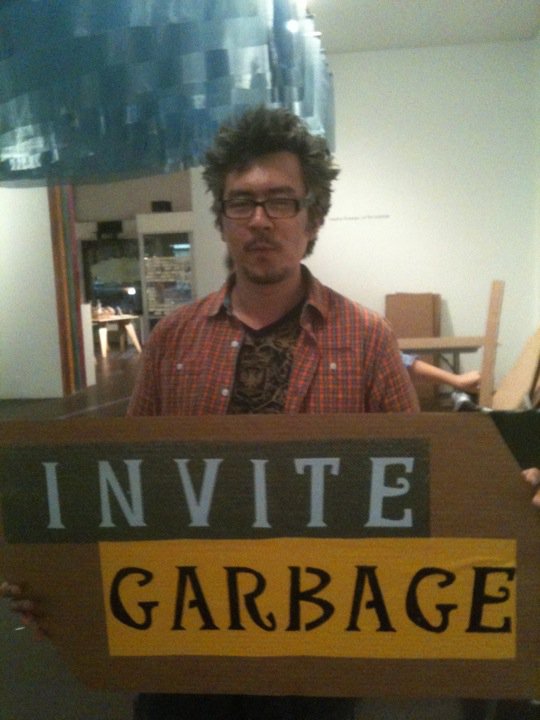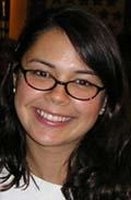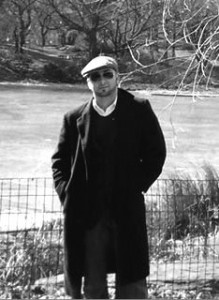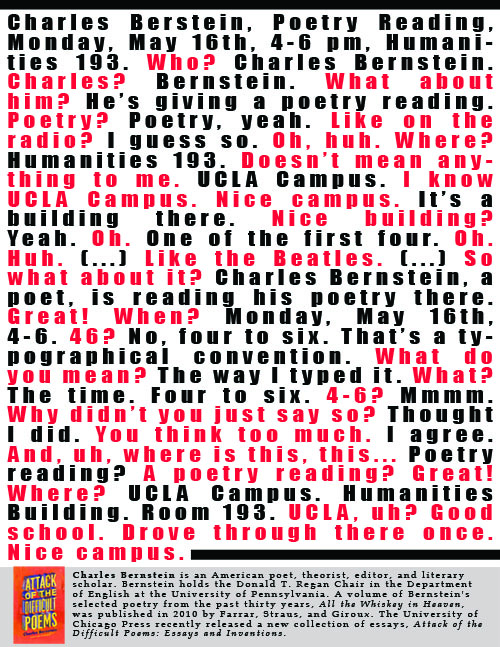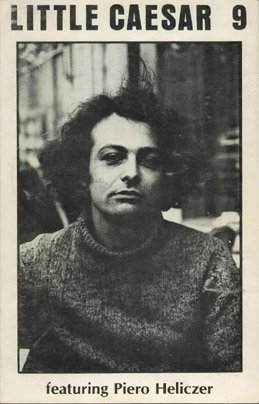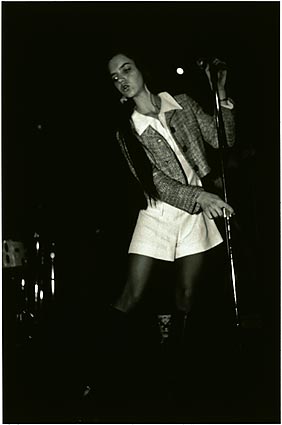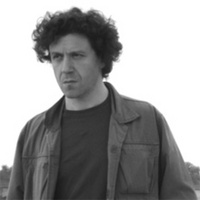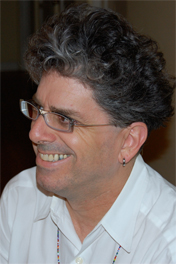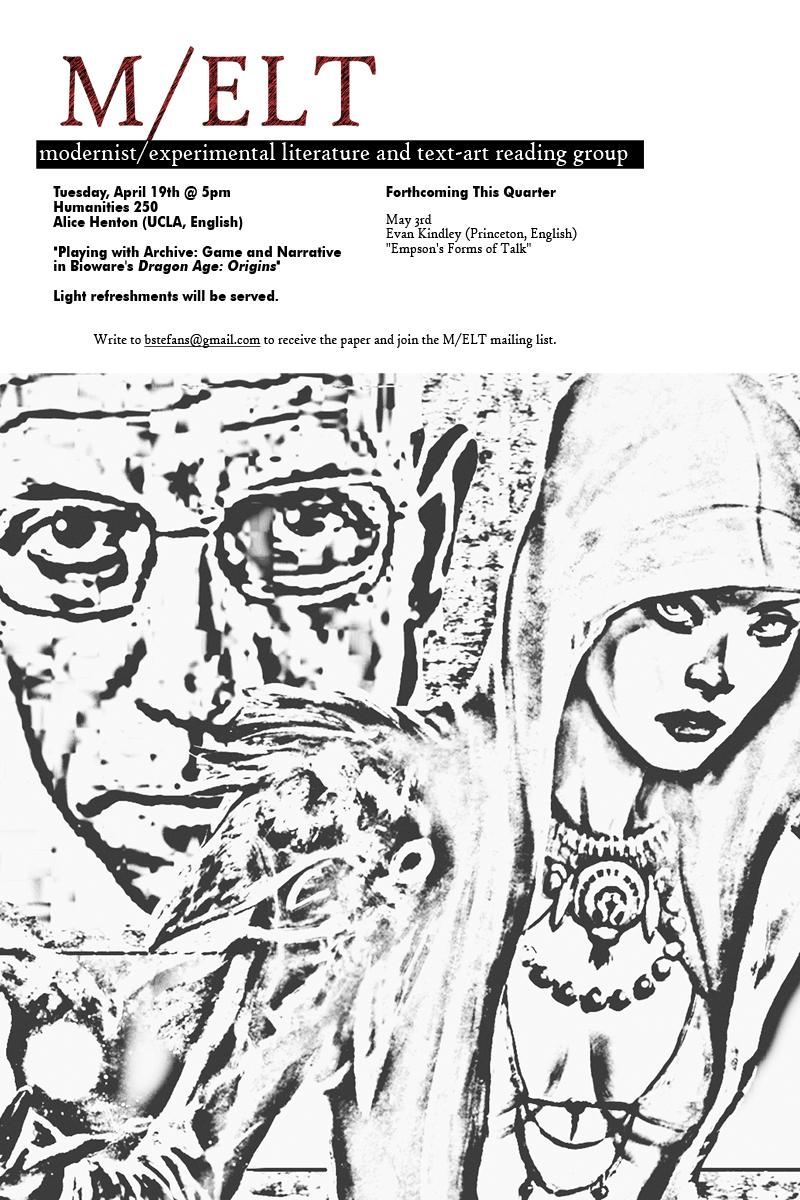I made this over the summer at a sign making event at LACE. Note the creepy background hands in both, but particularly the second, photo.
April 2011
Wed 27 Apr 2011
Mon 25 Apr 2011
Just watched a ton of these on YouTube. These are some of the classics. Couldn’t embed It’s a Mad Mad Mad Mad World, Psycho, and Casino (which I can’t find online but part of which is in the short doc below), but those are all great.
Walk on the Wild Side is recommended for cat lovers. Seconds is probably my favorite, but I can’t imagine half the audience not walking out of the theater during the titles.
Vertigo is somewhere between Duchamp’s Anemic Cinema and the time warp sequence in 2001: A Space Odyssey. Are those computer generated swirlies? I wonder if he was hanging out with John Whitney?
The Man With the Golden Arm (1955)
Vertigo (1958)
North by Northwest (1959)
West Side Story (1961)
Walk on the Wild Side (1962)
Seconds (1966)
Cape Fear (1991)
Saul Bass: Title Champ (short documentary)
Sat 23 Apr 2011
Brent Cunningham, Brandy NÄlani McDougall, Craig Santos Perez @ PRB
Posted by bstefans under AnnouncementNo Comments
@ the Poetic Research Bureau
Saturday, April 30, 2011 at 7:30pm
The PRB @ The Public School
951 Chung King Rd.
Los Angeles, CA
Doors open at 7:00pm
Reading starts at 7:30pm
$5 donation requested
Brent Cunningham is a writer, publisher and visual artist currently living in Oakland with his wife and daughter. He has worked for Small Press Distribution in Berkeley since 1999. His first book of poetry, Bird & Forest, was published by Ugly Duckling Presse in 2005, and his second, Journey to the Sun, is forthcoming in 2011 from Atelos. He and Neil Alger founded and run Hooke Press, a chapbook press dedicated to publishing short runs of poetry, criticism, theory, writing and ephemera.
Born and raised on Maui, Brandy NÄlani McDougall is of Kanaka Maoli (HawaiÊ»i, Maui, OÊ»ahu and KauaÊ»i lineages), Chinese, and Scottish descent. She is the author of a poetry collection, The Salt-Wind, Ka Makani PaÊ»akai (2008), and a chapbook, “Return to the Kula House,†featured in Effigies: An Anthology of New Indigenous Writing, edited by Allison Hedge Coke (2009). She currently teaches Hawaiian and Pacific literatures at the Kamehameha Schools, but will serve as assistant professor of indigenous studies in the American studies department at the University of HawaiÊ»i at MÄnoa in fall 2011.
Craig Santos Perez, a Chamoru originally from Guahan (Guam), is the author of two poetry books: from unincorporated territory [hacha] (Tinfish Press, 2008) and from unincorporated territory [saina] (Omnidawn Publishing, 2010). This fall, he will begin his quest for tenure as an assistant professor of creative writing in the English department at the University of HawaiÊ»i at MÄnoa.
Wed 20 Apr 2011
Wed 13 Apr 2011
Dear Melts, Digital Humanists, and others,
So, in preparation for my presentation on Friday — for which I had planned on assembling an annotated bibliography of books that fell within my understanding of the field of “digital humanities” (and/or “digital literature”), I decided to assemble the books as Amazon “lists” via the site’s “listmania” feature — seductive capitalist trap that it is! I got a little manic.
What appears below are five lists of 40 books each (that’s the max per list) that more or less circumscribe, for the moment, my understanding of the field of new media studies as it relates to literature. The titles of each of the lists are provisional — certainly any number of the books could end up on another of the lists — but in general I think it gives a pretty good idea of how I approach things, and I hope, if you have several hundred dollars to spare, that you decide to pick a few of these up. I’m going to petition the library to purchase copies of these if they don’t have them already.
If you have additional books to recommend to me for a more formal list for English graduate students, then send them my way! Most likely they won’t end up on the Amazon lists unless I can swap them out easily, given the limitations, but I’d like to have some lists on hand for future part 1s.
The good news is that I won’t blab on for hours on Friday about 100 books from my library, but I will describe my reasoning behind each of these lists and point out a few of the more unusual inclusions. It’s a very idiosyncratic assemblage (Lipstick Traces anyone?).
Best,
Brian
PS. BTW, several of the more adventurous publishers are offering their books online as downloadable PDFs. I’ve found a few of the titles below (such as Harman’s book on Latour, Prince of Networks, and Marcus Boon’s book In Praise of Copying), for free. This is kind of the companion post to my earlier Freeware Guide, Introduction to Electronic Literature.
2. Graphic Design and Visuality
3. Ludology and Narrative Theory
Wed 13 Apr 2011
Zine Days: Rimbaud, Punk and the New York School in the Poetry of Little Caesar Magazine (1976–1982)
Posted by bstefans under Los Angeles PoetryNo Comments
I just wrote this about a paper I will be presenting in Pomona in November for the PAMLA conference:
Zine Days: Rimbaud, Punk and the New York School in the Poetry of Little Caesar Magazine (1976–1982)
Dennis Cooper’s magazine, Little Caesar, marked a revival in “transgressive” poetry stemming out of the Beyond Baroque literature organization in Venice. Poets and musicians including Cooper, Amy Gerstler, Bob Flanagan, David Trinidad, Jack Skelly (poet and editor of Barney) and the punk band X’s Exene Cervenka and John Doe (among many others) were part of a short-lived scene that is still largely under-recognized nationally, even locally. This talk provides a brief overview of the history of the magazine and attempts to outline the distinctive elements of its coterie aesthetics.
Mon 11 Apr 2011
Digital Humanities “Jamâ€: A Workshop Seminar
Friday, April 15th, 10-2
CDH “Laptop Room,†Room B01
LuValle Café (enter down stairs from south side)
Light refreshments will be provided; please RSVP.
Introduction
The goal of this seminar is to consider ways in which graduate students in English and other departments of the humanities can integrate Digital Humanities into their research and scholarship. The structure of the seminar is as follows: early in the semester we will meet for a “jam session†on the digital humanities, during which students will be introduced to the concepts, technologies, and projects that are associated with the field. Students will be given an overview of work specific to UCLA, both by faculty and students, as well as in other universities when they speak of “digital humanities.†Students will then begin to consider how they can create projects that are integrated into their present research while taking advantage of digital technology, or at least the insight provided by theorists in the field.
Some Useful Links
UCLA Center for Digital Humanities
Where you can find all information about related faculty, the Graduate Certificate, research projects, etc.
http://www.cdh.ucla.edu
UCLA Digital Humanities Reading Group (sign up)
Listserv for DH lectures, workshops, job opportunities, etc.
http://lists.ucla.edu/cgi-bin/mailman/listinfo/digitalhumanities
United States Digital Humanities Academic Programs
Set of links to other major DH programs
http://www.cdh.ucla.edu/resources/us-dh-academic-programs.html
UCLA HyperCities
One of the several major UCLA DH projects, especially valuable to literary studies
http://hypercities.com
UCLA The Institute for Digital Research and Education (research projects)
Overview of IDRE-HASIS research projects at UCLA
http://idre.ucla.edu/hasis/research
UCLA Catalogue of Digitized Medieval Manuscripts
Mathew Fisher’s huge online links archive of medieval manuscripts from around the world
http://manuscripts.cmrs.ucla.edu
UCLA Game Lab
Exciting new research and design/programming lab at Design/Media Arts with fab website
http://games.ucla.edu
Electronic Literature Collection, Vol. 1 and Vol. 2
Collections of Electronic Literature, the first co-edited by N. Katherine Hayles, the co-edited second by myself
http://collection.eliterature.org/1/
http://collection.eliterature.org/2/
Sat 9 Apr 2011
I grabbed this list of punk and post-punk bands from the website (the name of which I can’t remember… seem to have lost the link), dropped it into an Excel spreadsheet, did a lot of search and replace, and voila!
Part of my on-going side project to create an anthology of obscure, and not so obscure, punk, post-punk and early hip hop singles by L.A. musicians. A Google search turned up yet another amazing photo of Su Tissue of Suburban Lawns.
Fri 8 Apr 2011
Thursday, April 14: Philippe Beck & Guy Bennett, 7:30pm
The PRB @ The Public School
951 Chung King Rd.
Los Angeles, CA
French poet Philippe Beck‘s first collection, Garde-manche hypocrite, came out in 1996, and since then he has published thirteen more books, including Garde-manche Deux, Élégie Hé, Chants populaires, as well as an intellectual biography, Beck l¹impersonnage, and a prose work, Un Journal. He has collaborated with Gérard Pesson and Philippe Mion in the composition of several operatic and choral pieces, and teaches both at the European Graduate School in Saas-Fee, Switzerland and the Centre Atlantique de Philosophie at the University of Nantes. In 1990 Philippe Beck was a founding editor of Alter, a journal of phenomenology, and in 2000 he founded and became editor-in-chief of the poetry journal Quaderno.
Guy Bennett is the author of several works of poetry, non-poetry, and numerous translations. Recent publications include the chapbooks 32 Snapshots of Marseilles and the big e, a translation of Ernst Jandl’s monovocalic poem das große e, and a new collection of poetry, Self-Evident Poems. His writing has been featured in magazines and anthologies in the United States and abroad, and presented in poetry and arts festivals internationally. Publisher of Mindmade Books (formerly Seeing Eye Books) and co-editor of Otis Books / Seismicity Editions, he lives in Los Angeles and teaches at Otis College of Art and Design.
Fri 8 Apr 2011
M/ELT: modernist/experimental literature and text-art reading group
Posted by bstefans under Announcement , M/ELTNo Comments
